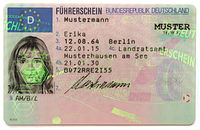
Photo from wikipedia
Abstract The social licence concept originated in resource industries and has generated models that attempt to integrate the social, legal, economic, and political factors that affect it. While the processes… Click to show full abstract
Abstract The social licence concept originated in resource industries and has generated models that attempt to integrate the social, legal, economic, and political factors that affect it. While the processes by which a social licence is won or lost at the community level have been detailed, there has not been a similar process-oriented exploration of how public opinion also affects it. This article proposes the ‘narratives and networks’ model for integrating community impacts based in stakeholder relationships with public opinion impacts based in resource policy narratives in the public sphere. It clarifies the social licence concept and articulates hitherto latent questions about it. The engine of the model is a process called the ‘socio-political churn’, which is the interaction of networks of narratives with networks of stakeholders. The model draws on existing political science research into the public policy development process and provides a framework for conceptualizing and researching the co-evolution of narratives and coalitions that embody the rivalries among stakeholders with conflicting agendas. For the rivals themselves, the model offers a scalable framework for developing practical strategies for either improving or damaging an organization's or an industry's social licence.
Journal Title: Resources Policy
Year Published: 2020
Link to full text (if available)
Share on Social Media: Sign Up to like & get
recommendations!